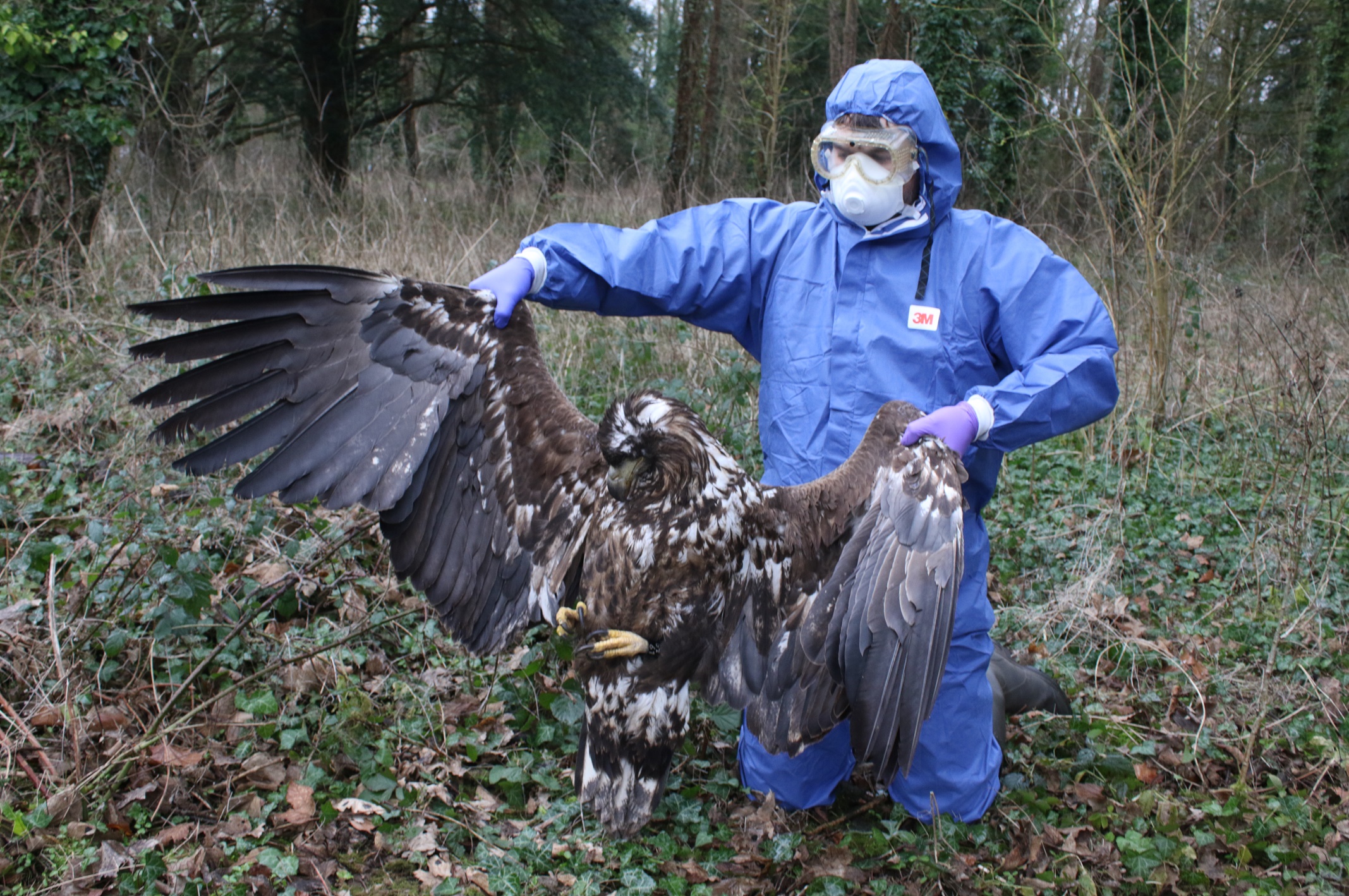Following the death of a white tailed eagle in North Dorset as a result of rat poison wildlife experts have challenged what appears to be a cover up by a local MP, the police and the Police and Crime Commissioner.
Dorset Police has been investigating the discovery of the dead bird of prey and has concluded that whilst there were high levels of the poison brodifacoum found, it’s not possible to say whether it was as a result of a deliberate and therefore criminal act.
No further action is to be taken and the case has been closed.
Dorset Police has called off the investigation into a dead White-tailed Eagle that was poisoned at an undisclosed site in the county in January.
As Bird Guides has reported:
‘The bird was one of two eagles found deceased in suspicious circumstances in southern counties at the beginning of the year. The news attracted further controversy when Conservative MP for West Dorset, Chris Loder, criticised the police for using its resources to investigate the deaths.
However, it appears that Loder has got his way. A statement from Dorset Police, released on 29 March, read: “An investigation … was carried out in conjunction with the RSPB, Natural England, National Wildlife Crime Unit and the Roy Dennis Wildlife Foundation.
“A detailed examination and tests have been carried out on the bird, which were inconclusive, and it has therefore not been possible to confirm that any criminal offence has been committed.”
“While high levels of brodaficoum were detected, it has not been possible to establish whether this was the result of a deliberate act or due to secondary rodenticide poisoning.
“As a result, no further police action will be taken in relation to this report.”

The White-tailed Eagle found dead in Dorset (Dorset Police).
The RSPB expressed its shock at the abrupt closure of the investigation, saying in a statement that it was “completely baffled” by the decision, adding: “Brodaficoum, the rodent poison that killed the eagle, is highly toxic and it is clear that it was being used either incompetently or with intent to kill raptors – either way, an illegal act.”
The RSPB added that “a thorough land search had been planned on the estate in question to look for evidence such as poison baits or their misuse”, but this was “inexplicably called off”.
In a post on its blog, the Roy Dennis Wildlife Foundation shared the post-mortem results on the eagle, known as ‘G461’, revealing that it had consumed a large amount of poison. The organisation said: “The bird’s liver contained approximately seven times the amount of brodifacoum required to kill a bird like a White-tailed Eagle. The satellite data indicates that the eagle, which was otherwise healthy, deteriorated and died over a period of several days.”
The Foundation added: “EU Environmental Risk Assessments have previously concluded that second-generation anticoagulant rodenticides (SGARs) such as brodifacoum should not be permitted for external use because the environmental risk is too great. However, regulations around their use in outdoor settings in the UK have been relaxed in recent years, and we believe this could pose a significant risk to birds of prey and other wildlife.”‘
This has caused consternation across the wildlife community.
Chris Packham suspects dodgy goings on.
Katie Jo Luxton, RSPB conservation director, has responded to Dorset Police’s decision by saying:
“We are completely baffled by the decision taken by Dorset Police to end the white-tailed eagle investigation so prematurely.
“Brodifacoum – the rodent poison that killed the eagle – is highly toxic and it is clear that it was being used either incompetently or with intent to kill raptors. Either way, this is an illegal act.
“A thorough land search had been planned on the estate in question, to look for evidence such as poison baits or misuse, but that was recently and unexpectedly called off.
“The investigation has not been closed by the Health and Safety Executive but that has now been made defunct by the police communication.
“We seek assurance from Dorset Police that their wildlife crime remit is still operational and that other significant ongoing raptor persecution investigations are fully investigated ‘without fear or favour’ as per Police Oath.”
Sandra Knowles, Managing Director of Hillbans Pest Control, has commented on the use of poison:
“It is important that extreme care is considered when using any bait to eradicate pests such as rats and mice. This case shows the danger of secondary poisoning, often the result of people doing it themselves using over the counter and online bought bait.
“Using a professional pest control company ensures this can be avoided, as they adhere to strict industry guidelines, use non-toxic bait that eliminates the danger of secondary poisoning and risk to wildlife such as the White-Tailed Eagle and our own Red Squirrel population on the island.”
Why is it that when something dodgy is occurring Tories and their apparatchiks are so often at the heart of it?
Penny Lane
Award Winning Independent Citizen Media Needs Your Help. PLEASE SUPPORT US FOR JUST £2 A MONTH https://dorseteye.com/donate/







